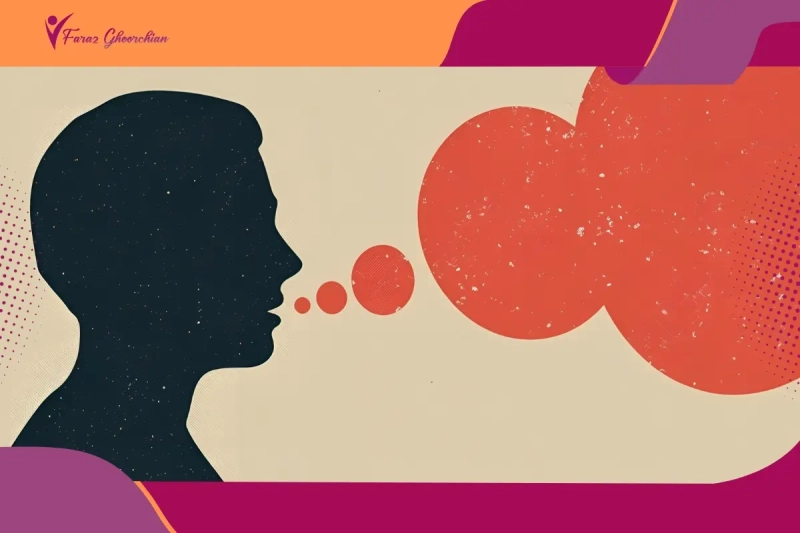Discover 10 ways to improve communication skills for personal and professional growth. Learn benefits, definitions, and proven strategies for managers, teens, and kids.
- 1. Introduction: Why Communication Skills Matter
- 2. Understanding Communication Skills
- 3. The Benefits of Strong Communication Skills
- 4. Active Listening as a Foundation
- 5. Clarity and Simplicity in Expression
- 6. Non-Verbal Communication Awareness
- 7. Adapting to Your Audience
- 8. Feedback and Constructive Criticism
- 9. Digital Communication Etiquette
- 10. Storytelling for Impact
- 11. Continuous Learning and Practice
- 12. Conclusion
Introduction: Why Communication Skills Matter
It’s strange how much of life comes down to how we talk and listen to each other. A quick chat with a colleague, a long talk with a friend, even a short email can either strengthen a connection or quietly create distance. That’s really where the communication skills meaning comes in. It isn’t just about having the right vocabulary. It’s about knowing how to listen without rushing, how to explain an idea so it lands, and how to notice the little cues people give away without saying a word. Once you understand the communication skills definition, you start seeing its influence everywhere in teamwork, in problem-solving, and in communication skills and personality development. Over the next few minutes, we’ll go through 10 ways to improve communication skills that anyone can use, no matter where they are starting from.
Understanding Communication Skills
If you ask ten people what communication skills are, you will probably hear ten slightly different answers. Some might talk about speaking clearly, others about listening well, and a few will mention the way someone’s body language changes the feel of a conversation. The thing is, all of those play a part. The communication skills meaning stretches far beyond words. It is about how thoughts and emotions are shared and understood, whether through a warm tone, a nod of agreement, or a pause that lets the other person think.
The communication skills definition also shifts depending on the moment. Explaining something to a child is nothing like giving instructions to a team at work. That ability to adapt is part of the development of communication skills, and it comes with time, trial, and a bit of self-awareness. It can even help you figure out How to Be Less Stressed in challenging situations, since better communication often prevents misunderstandings. Paying attention to communication skills examples in real life, like a teacher calming a restless classroom or a friend easing tension during a disagreement, can show patterns worth learning from.
The Benefits of Strong Communication Skills
Strong communication skills aren’t just useful in big moments. They make a difference in the quiet, everyday exchanges too. If you think about the communication skills meaning, it’s really about making life a bit smoother. The communication skills benefits tend to sneak up on you once you start paying attention.
Here’s what they often bring:
- Better teamwork and collaboration – Clear explanations keep everyone moving in the same direction without endless back-and-forth.
- Improved problem-solving – Sometimes just letting someone finish speaking uncovers the answer you were looking for.
- Stronger relationships – People are quicker to trust when they feel heard, and that changes everything.
- Career growth – For leaders and communication skills for managers, being able to guide conversations without confusion is a game-changer.
- More confidence – Knowing you can speak up and be understood makes stepping into new situations feel less risky.
When you understand the 10 importance of communication skills, it becomes clear how they connect to bigger achievements, including the 10 ways to achieve your goals in both personal and professional life. It’s worth putting in the effort to keep improving, even in small ways.
Active Listening as a Foundation
Of all the communication skills, active listening is the one that quietly makes the biggest difference. It is not just waiting for your turn to talk. The truth is, it is about catching the little things in someone’s words, their tone, even a quick change in expression, and showing that you actually care. People who understand the communication skills meaning often notice how this alone can change the whole outcome of a conversation and sometimes even help you decide how to change your mind when you hear a new perspective.
It is a big part of the development of communication skills too. Things like asking a simple follow-up question, holding eye contact for a few seconds longer, or repeating back what you understood can make the other person feel valued. In a work setting, it is at the core of how to improve communication skills in the workplace, helping teams avoid confusion. In daily life, it might be why a friend leaves the conversation feeling lighter. Out of all communication skills examples, this is the one that gives every other skill a solid base.
Clarity and Simplicity in Expression
When it comes to communication skills, being clear is often more valuable than sounding impressive. The thing is, people tune out if they have to work too hard to follow what you are saying. Anyone who understands the communication skills meaning knows that using simpler words and shorter sentences can make ideas stick far better than a long, complicated explanation.
The communication skills definition is not just about knowing what to say, but about making sure the other person gets it. A manager explaining a new policy, or someone giving communication skills for managers training, will usually have more success if they strip away the extra details and focus on the essentials. That is part of the development of communication skills and comes from learning how to shape a message for the listener, not just for yourself.
In practice, this means thinking before you speak, picking words carefully, and keeping the main idea front and center. Done well, it makes conversations easier, faster, and far more productive.
Non-Verbal Communication Awareness
A lot of what we say never comes out in words. The truth is, some of the most important parts of communication skills happen through small, silent signals. It might be the way someone leans in when they’re interested, a quick glance away when they’re unsure, or even how their voice softens at a certain moment. People who really understand the communication skills meaning tend to notice these details without forcing it.
The communication skills definition includes this silent side because it shapes how messages are received. You can usually tell when a leader feels confident just by the way they stand or make eye contact, which is why communication skills for managers often cover body language in depth. Developing this awareness can also help anyone learn How to Be More Confident in both personal and professional interactions.
Building this kind of awareness is part of the development of communication skills. Noticing communication skills examples in daily life, like a teacher calming a restless class with a smile or a colleague showing support with a nod, can help you adjust your own non-verbal style so your message feels authentic and clear.
Adapting to Your Audience
Sometimes you realize halfway through a conversation that the way you are explaining something just isn’t clicking. That’s where strong communication skills make all the difference. Part of the communication skills meaning is knowing when to shift your tone, pace, or choice of words so the other person actually gets it. The way you’d explain a new game to communication skills for kids learners is nothing like how you’d guide a group while teaching communication skills for teens, and both are completely different from sharing a quarterly update with company executives.
The communication skills definition fits into both personal and professional life. A sports coach might simplify instructions for a rookie, while communication skills for managers often mean delivering the same core message in a way that motivates a diverse team. This adaptability is at the heart of Improving Communication Skills and comes with time, reflection, and consistent practice.
This flexibility is central to the development of communication skills. By observing communication skills examples in real situations, you learn how to read the mood, adjust your approach, and keep your audience engaged from start to finish.
Feedback and Constructive Criticism
The way feedback is given can completely change how it’s received. It’s one of those communication skills that can either build someone up or shut them down. When you understand the communication skills meaning, you start to see feedback less as pointing out mistakes and more as guiding someone toward a better result.
The communication skills definition here blends honesty with tact. In real work situations, especially when thinking about how to improve communication skills in the workplace, it helps to keep feedback specific. Something like, “Your opening paragraph will be stronger if you lead with the main result,” gives the person a clear way forward.
For leaders, developing communication skills for managers means learning how to deliver that feedback while still keeping the other person motivated. On the flip side, accepting constructive criticism is a sign of maturity in the development of communication skills. It’s about listening, asking questions if needed, and taking what’s useful so you can do even better next time.
Digital Communication Etiquette
The thing is, a lot of communication skills now live in the digital world. Emails, quick messages, and video meetings can say as much about you as a face-to-face conversation, maybe even more. Without body language or tone of voice, though, it’s easier for someone to misread your meaning. That’s why knowing the communication skills meaning in this setting is so important.
The communication skills definition online is more than spelling and grammar. It’s about making sure your point is clear and that you sound respectful, even in a short reply. In a work context, especially when looking at how to improve communication skills in the workplace, that could mean using a subject line that actually sums up your email or breaking big updates into smaller, digestible points. On a video call, simple things like keeping your focus on the camera, nodding when others speak, and avoiding background noise make a difference.
For leaders, strong communication skills for managers online are about mixing professionalism with approachability. Over time, these habits become part of the development of communication skills and help your message land the way you intend.
Storytelling for Impact
The thing is, people remember stories more than they remember data. That’s why strong communication skills often include the ability to wrap information inside a narrative. If you think about the communication skills meaning here, it’s not just about entertaining someone. It’s about making your point stick by connecting it to something they can picture or feel, whether that’s a workplace challenge or a personal experience related to Mental Health.
The communication skills definition in this case includes knowing how to pace your story, add just enough detail, and make it relevant to whoever is listening. In a professional setting, especially when working on how to improve communication skills in the workplace, a short story about a past project can make a lesson far more memorable. For leaders, developing communication skills for managers might mean using a personal example to explain a decision so the team understands the reasoning behind it.
Over time, this becomes part of the development of communication skills. If you watch communication skills examples from great speakers, you’ll see how their stories give meaning to facts, turning a simple message into something people carry with them.
Continuous Learning and Practice
The truth is, communication skills aren’t something you master once and keep forever. They shift depending on the situation and the people involved. Anyone who understands the communication skills meaning tends to treat every interaction as a chance to practice, whether it’s a formal meeting or a quick chat while waiting for the lift.
If you look at the communication skills definition this way, improvement comes less from memorizing rules and more from paying attention. When thinking about how to improve communication skills in the workplace, it might be trying a new approach in a team discussion, testing how it lands, and adjusting next time.
For leaders, building communication skills for managers often starts with noticing how their words affect the group and being willing to change. That’s really the core of the development of communication skills, spotting communication skills examples in everyday life and quietly using them to make the next conversation a little better.
Conclusion
The thing is, communication skills keep growing the more you use them. Once the communication skills meaning makes sense, you start catching small moments that matter, like rephrasing something so it lands better or letting a pause give the other person space to respond.
The communication skills definition only becomes real when it’s lived. That could be testing how to improve communication skills in the workplace by changing how you open a meeting, or for leaders, refining communication skills for managers so the team feels heard. These small shifts build the development of communication skills over time. By noticing communication skills examples in everyday life and borrowing what works, you slowly turn communication into something that not only supports your goals but also strengthens your connections with others.















